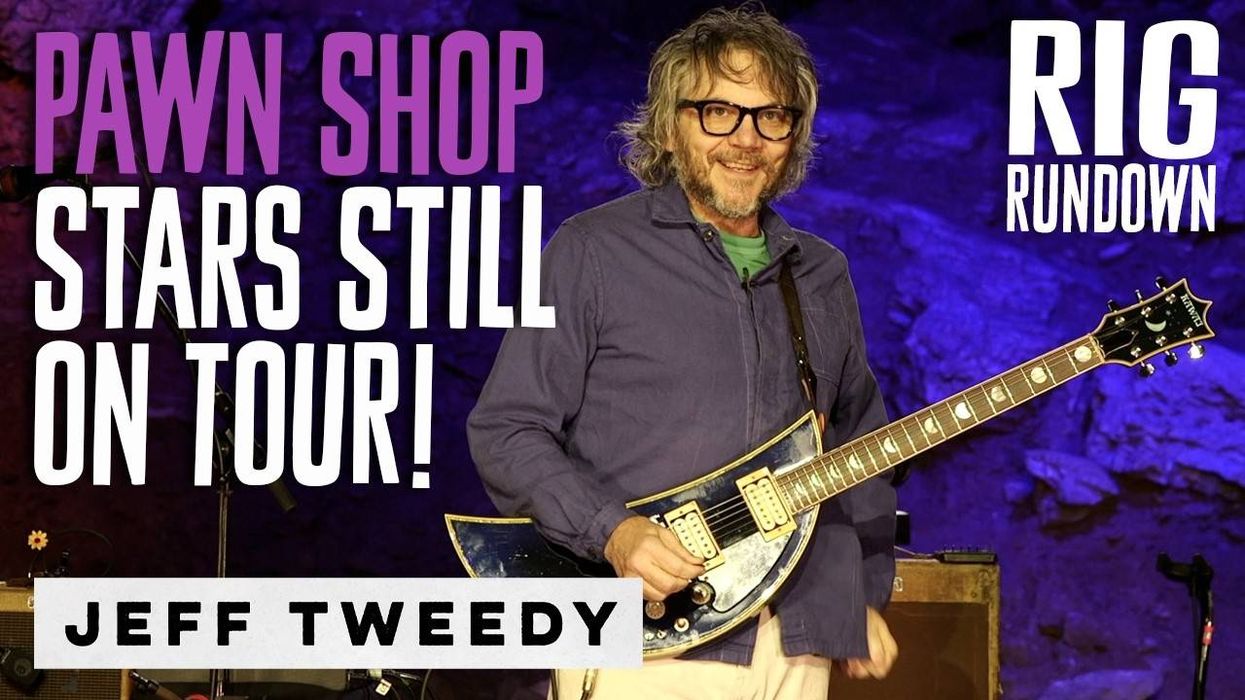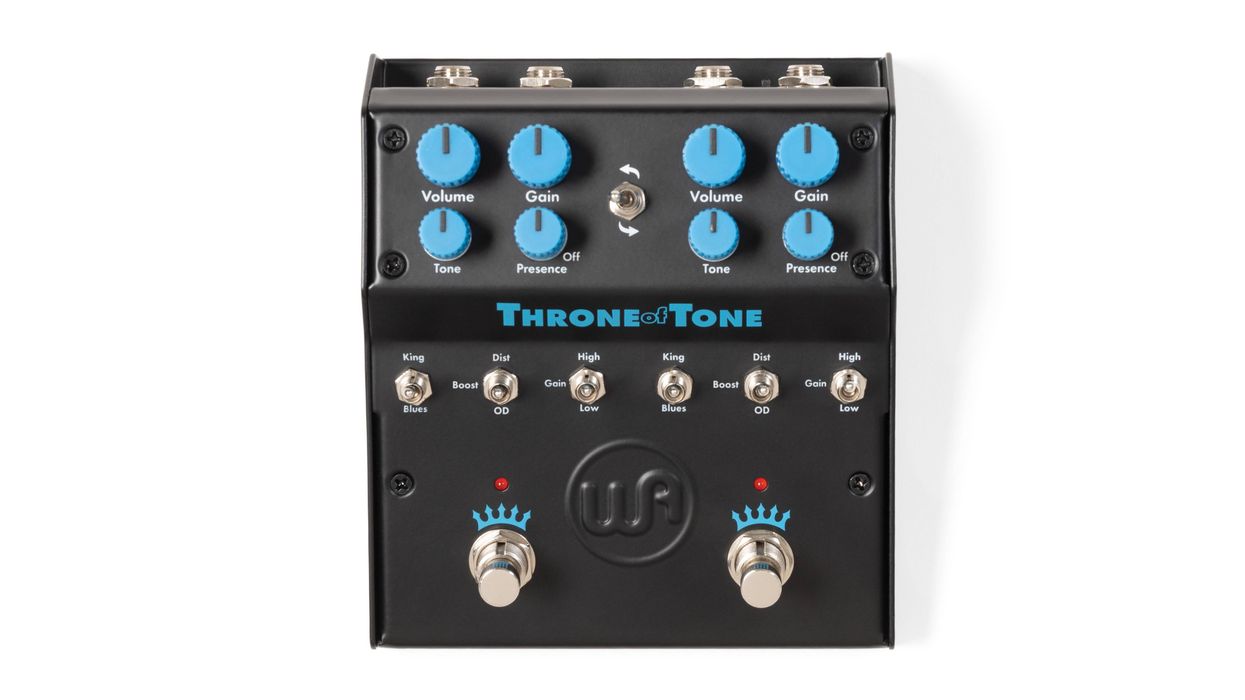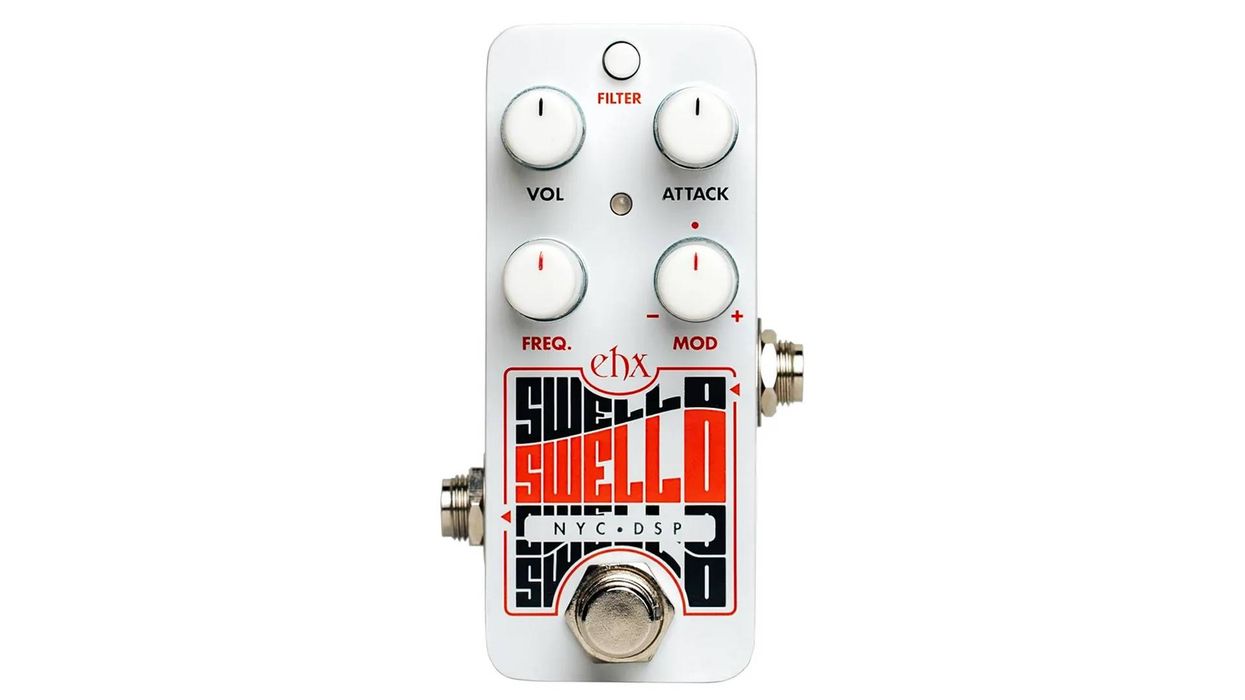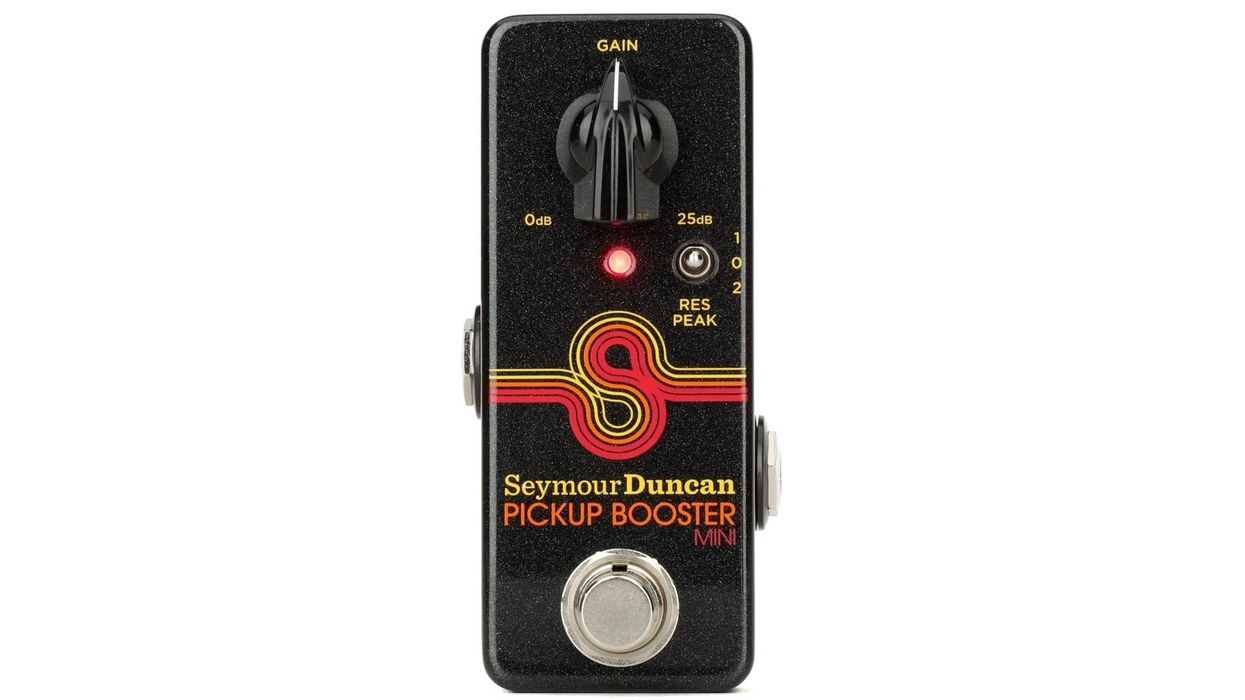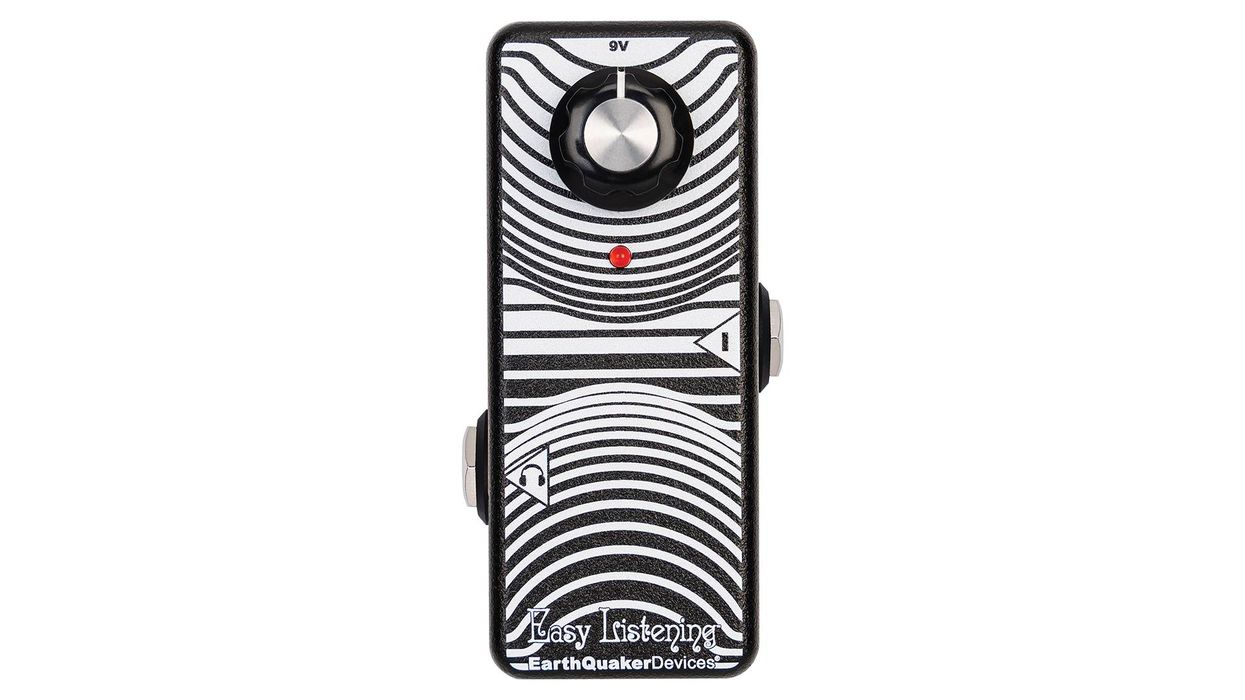Hotline TNT singer and guitarist Will Anderson started writing songs as a way to work through personal relationships, so it’s no surprise that the New York band’s second LP, Cartwheel, encapsulates Anderson’s modern-day, bard-like quest for romance—for better and for worse—through heavy fuzz pedals, distorted guitars, and layered sonic textures that cascade over propulsive rhythms. Slick engineering from punk artist Ian Teeple and Aron Kobayashi Ritch lift the record into the sweeping shoegaze stratosphere, that bottomless niche of music where heartbreak and mammoth, verbed-out riffs cry on each other’s shoulders.
Each of the 12 tracks on Cartwheel features enormous guitar sounds from Anderson and guitarist Olivia Garner that, together, comprise a thrashing, muddy, angry, joyful, and howling slurry, as if the instruments were in the thralls of a cathartic musical bender. Above it all, Anderson’s simply written lyrics map out tart terrain—anyone who has experienced the throes of love in all of its messy stages will recognize themselves in his words.
Anderson, who is originally from Wisconsin, launched his music career 10 years ago with the Canadian noise-pop band, Weed, before eventually launching Hotline TNT in 2021 with the project’s debut, Nineteen in Love. Anderson traversed music scenes from coast to coast—New York and North Carolina, Wisconsin and neighboring Minnesota, Vancouver and Seattle—and his DIY dedication helped grow Hotline TNT’s audience until the band caught the attention of Jack White’s Third Man Records. Thanks in part to the label’s support, Cartwheel transcends the band’s 2021 introduction, infusing more engaging, heartfelt melodies without losing any of the band’s trademark grinding urgency.
Hotline TNT - "Protocol"
Inspired by his older brother’s jazz band, Anderson started playing bass towards the end of his time in the fifth grade. Within a few years, he’d picked up the guitar, and by high school, he was playing in cover bands with his brother. His college years marked his first attempts at songwriting, a process which, for Anderson, starts with chords and melodies, then lyrics.
Up until signing with Third Man, Anderson had been supplementing his music work with substitute teaching at a public high school in New York City. One of his colleagues had been in the Scottish rock band Teenage Fanclub, and, knowing the difficulty of being a working musician, covered for Anderson at some points so he could work on Hotline TNT matters.
“Whenever I hold a pick, my wrist gets really tight, and I just think, ‘no.’” —Will Anderson
Garner, meanwhile, started playing guitar in middle school in Louisiana. Her dad’s favorite band was the Smiths, which imprinted heavily on her while growing up. But these days, she’s reaching for Neil Young and Crazy Horse, ’90s material like Red House Painters, or ’80s pop band Beat Happening—one of Kurt Cobain’s favorites, Garner notes, and “a band who every person who picks up the guitar should listen to.” (Her other band, in fact, is named Touch Girl Apple Blossom, inspired by lyrics from the Beat Happening track “Indian Summer.”) It’s a mix that makes sense for Hotline TNT’s woolly, melodic maelstrom.
Hotline TNT's Gear
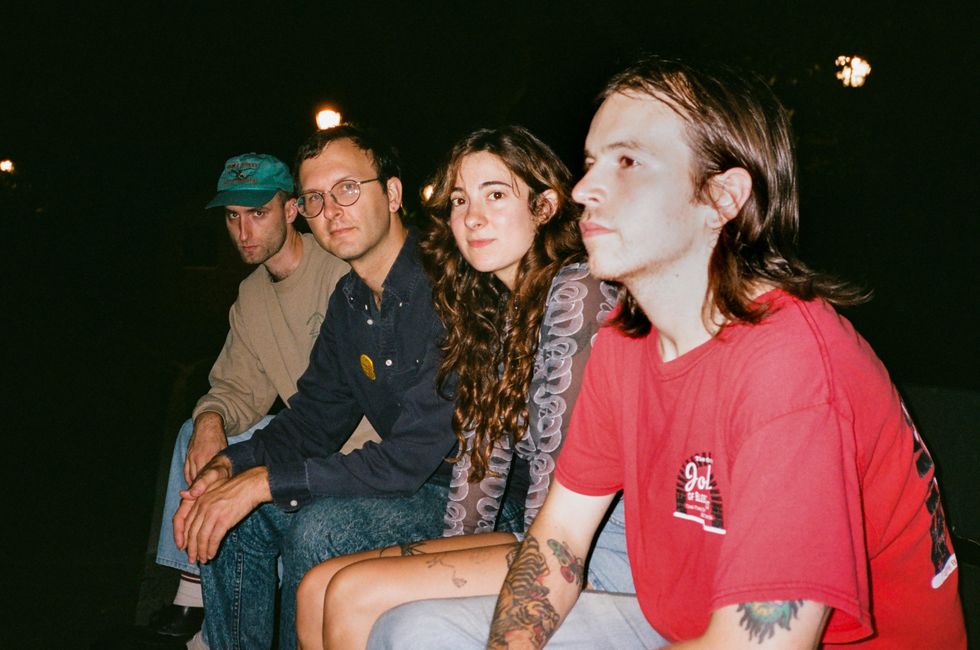
Anderson and Garner aren’t very particular about their gear—Anderson didn’t know what an amp head was until a few years ago—but they favor the fuzzy balance between a Pro Co RAT and an EHX Big Muff.
Photo by Wes Knoll
Guitars
- Yamaha SG-3
- 1996 MIJ Fender Telecaster with Lollar pickups
- 2014 MIM Fender Strat with Lollar pickups
Amps
- Randall RX120RH
Effects
- Pro Co RAT
- EHX Big Muff Pi
Strings
- Ernie Ball Super Slinky Nickel Wound (.009–.042)
Garner now lives in Austin, where Hotline TNT played at SXSW this year. “Will and I run around in similar circles of music,” she says, “so when Hotline TNT was looking for a guitar player, I came to New York and rehearsed with them. It was a good fit, so I joined. It’s been a wild ride.”
Garner acquired her main guitar—a natural finish, short-scale Peavey T-30—from a former bandmate in an upgrade from her previous Squier. “It’s my baby,” she says. “What I like about it is that it’s really lightweight, so no back problems, and I appreciate the short scale.”
“Despite the fact that this particular guitar has been with me for so long, I’m actually not that precious with it.” —Will Anderson
Anderson’s primary guitar is a vintage Japanese-made Yamaha SG-3 that he bought in Vancouver when he was 19. “These days, Yamaha SG-3s go for $2,500 in the high range, but I bought my guitar for about $788 in Vancouver from a music store called Not Just Another Music Shop,” he says. “At the time, I just thought it looked cool. Because I couldn’t afford to buy it outright, I made payments on it all summer long before I could take it home.” Anderson’s SG-3-driven leads on Cartwheel, by the way, are all straight from his fingers. “I do not play with a pick—never have,” he notes. “I get a lot of comments about this at shows. Whenever I hold a pick, my wrist gets really tight, and I just think, ‘no.’”
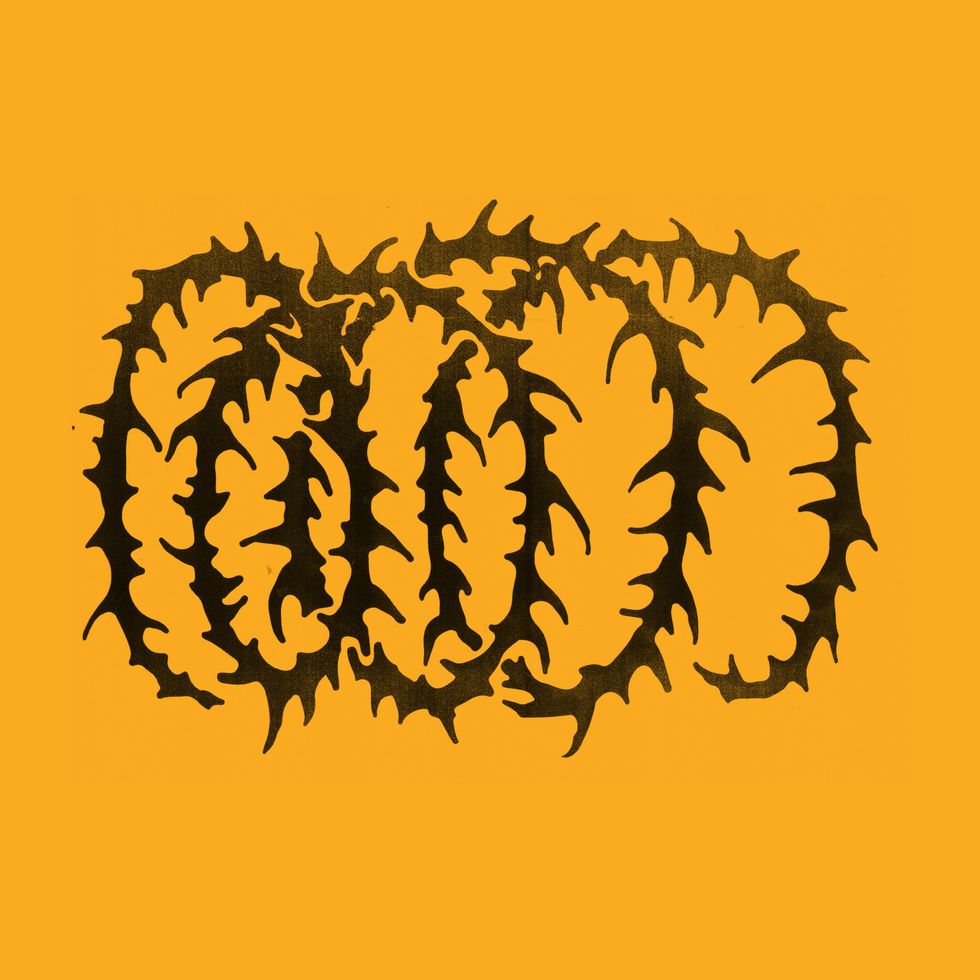
All three Hotline TNT guitarists, Will Anderson, Olivia Garner, and Matt Berry, come together on Cartwheel to create an entrancing blend of textural distortion under Anderson’s romance-inspired lyrics.
Despite his allegiance to his Yamaha, Anderson admits that he’s actually not all that sentimental about the instrument. The thing he loves best about the SG-3 doesn’t have to do with tone or playability—it’s that it still performs after years of abuse. “Despite the fact that this particular guitar has been with me for so long, I’m actually not that precious with it,” he says. “If something happened to it, I’d be sad, sure, but I’d also think, ‘Alright, it’s time to find a new one.’”
Still, when it comes to travel, Anderson doesn’t take many chances with his guitar. “Overseas, I usually put my guitar on a gig bag that I carry on my back when I board the plane,” he says. “I pretty much talk my way into things and out of things when it comes to dealing with travel.”
“I pretty much talk my way into things and out of things when it comes to dealing with travel.” —Will Anderson
Anderson’s love for his main axe is about as far as his gear passion goes. Though he feels an increasing sense of responsibility to improve his gear knowledge base, he confesses to being happily clueless. A few years back, he bought a solid-state Randall half-stack, which is still his go-to amp, and it provided an unexpected learning experience. “To show you how little I know about gear, two or three years ago somebody said to me, ‘Can I borrow your amp head for our set?’ I was like, ‘You can. Is it onstage now? Because I don’t know. What is that thing?’ I didn’t know what a head was until recently.”
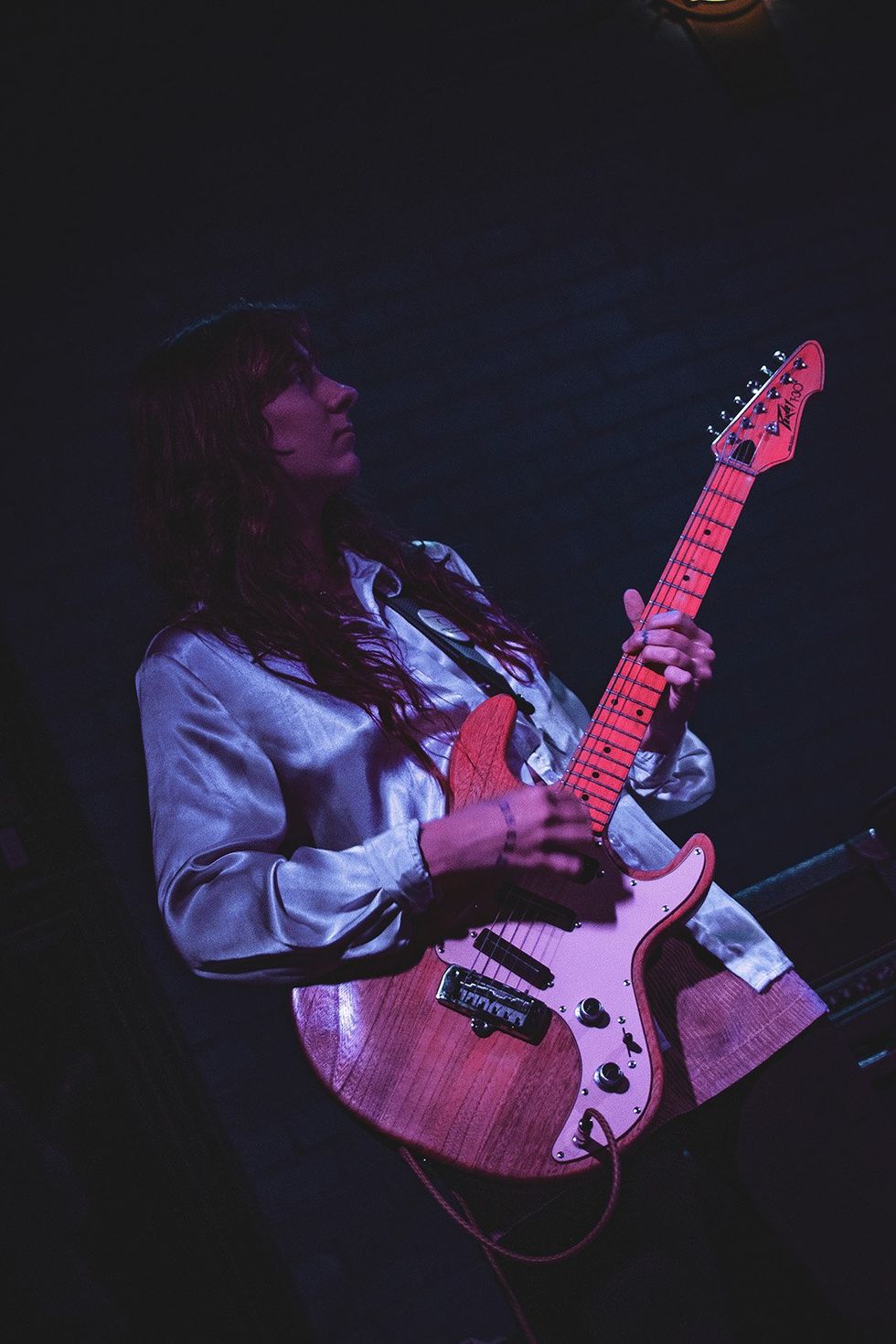
While Anderson plucks out finer lead parts, Garner says her role is to create a “giant wall of sound” with open chords and thick distortion.
Photo by Jade Amey
Effects-wise, Anderson and Garner strike a warm balance between a Pro Co RAT, a Boss DS-1, and a Big Muff Pi that Anderson bought in high school. The interplay between the three is all over Cartwheel, but is especially prominent on “Protocol” and “BMX,” which both utilize the pedals’ respective distortions as percussive and resonant elements. The blend creates a sort of halo: It extends outward like its own multi-layered cloud strata, enveloping the lyrics in “I Thought You’d Change,” and creating an uplifting effect that counters the descending melodies in “Stump” and “Son in Law.”
The goal, says Garner, is to create “a giant wall of sound with big, giant chords.” “I hold down the big chords while Will will do his leads,” she says. One of Anderson’s oldest friends, Matt Berry, recently joined the band, completing a triple-guitar threat. (Berry serves as de facto guitar tech for the band, even changing Anderson’s strings.)
“I pretty much talk my way into things and out of things when it comes to dealing with travel.” —Will Anderson
Hotline TNT isn’t Anderson’s only outlet. He’s morphed his extracurricular interests into a hydra-esque presence online, which includes hosting both a Twitch stream and an Instagram talk show, and publishing a basketball zine. “It’s all about feeding the same vision and aesthetic,” says Anderson. “People seem to be rocking with it, so that’s cool.”
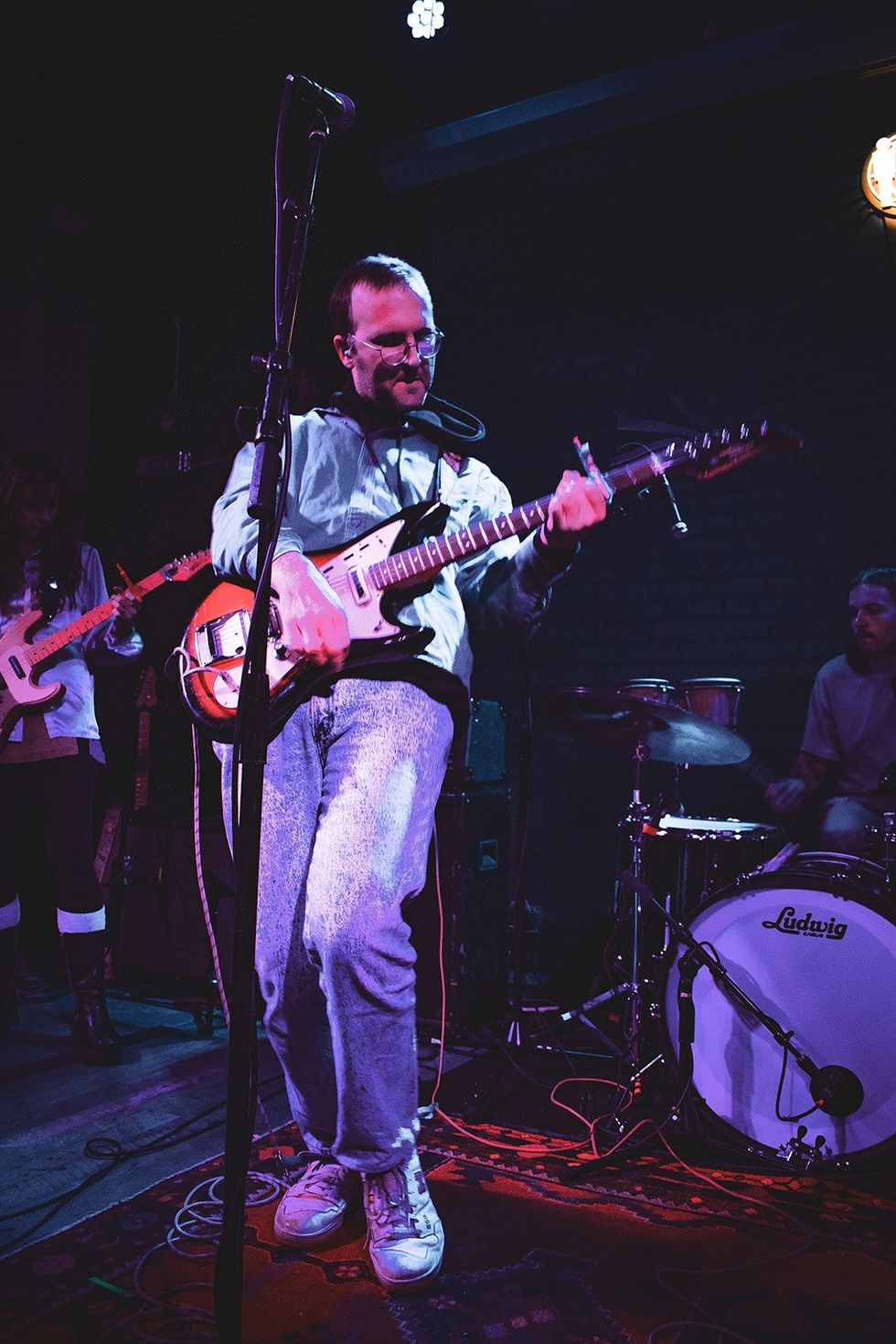
Will Anderson was teaching at a New York high school before Jack White’s Third Man Records signed Hotline TNT.
Photo by Jade Amey
But his other endeavors might have to be set on the backburner this year, as Hotline TNT’s stock is rising. They spent much of 2023 on the road, but this time out, they had a better van and sleeping accommodations. Even if they didn’t, though, Anderson wouldn’t mind. Touring feels like home—especially if he gets to see the midwest in the fall. Early this year, Hotline TNT is ripping through mainland Europe—including Italy, France, and Germany—and later, they’ll hit Japan, a personal highlight for Anderson. In line with their laissez-faire approach to gear, Anderson says they plan to leave their gear at home, and pick up fill-ins overseas to make sure they don’t run into international voltage variance issues.
Anderson currently has six demos in the hopper toward his next album. Usually, he says he’d already have another record ready to go, but Hotline TNT’s explosion in popularity has kept them busy on the road, and working with Third Man has flooded the band with exciting opportunities. But Anderson does have a shortlist of people to work with for the next release, and a rough sketch of the collection’s themes: relationships, heartbreak, and family.
But don’t expect to learn what the band’s name means any time soon. “It does stand for something, but I cannot reveal publicly what it is because me and the original members of the band from four years ago came up with it,” says Anderson. “It’s our sacred vow to keep that a secret.”
YouTube It
Bathe in colored stage lights and sweet, thick distortion with Hotline TNT’s live performance in Toronto in March 2023.
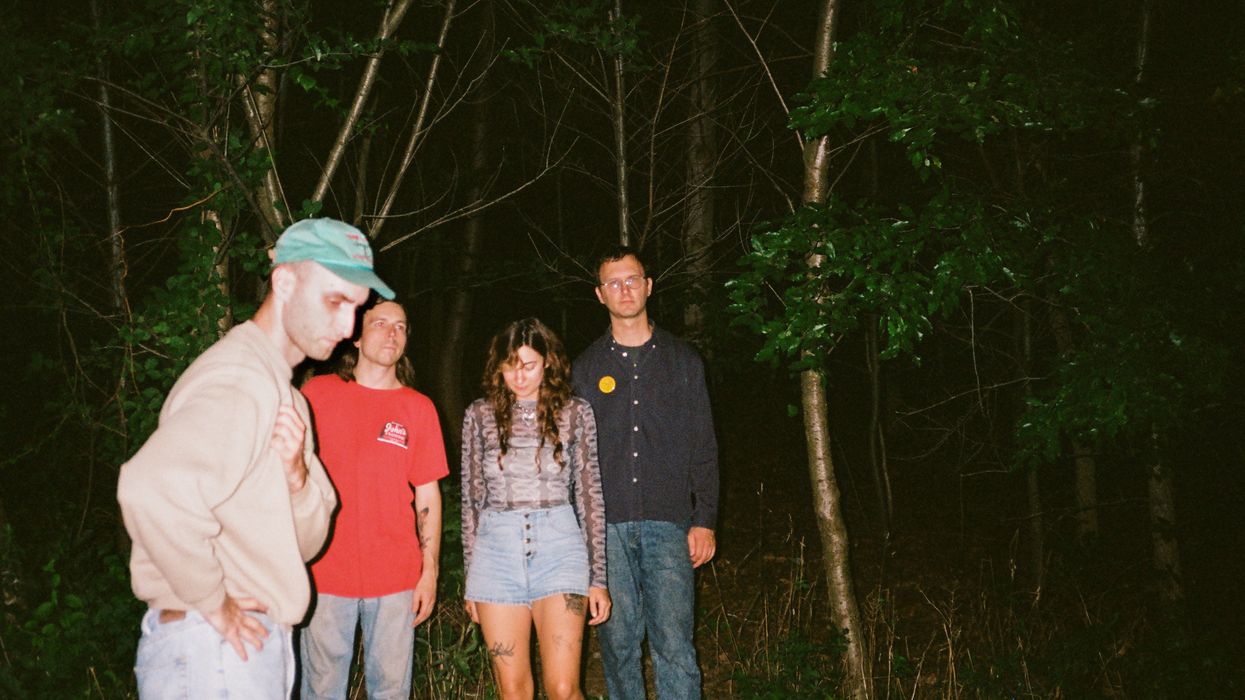
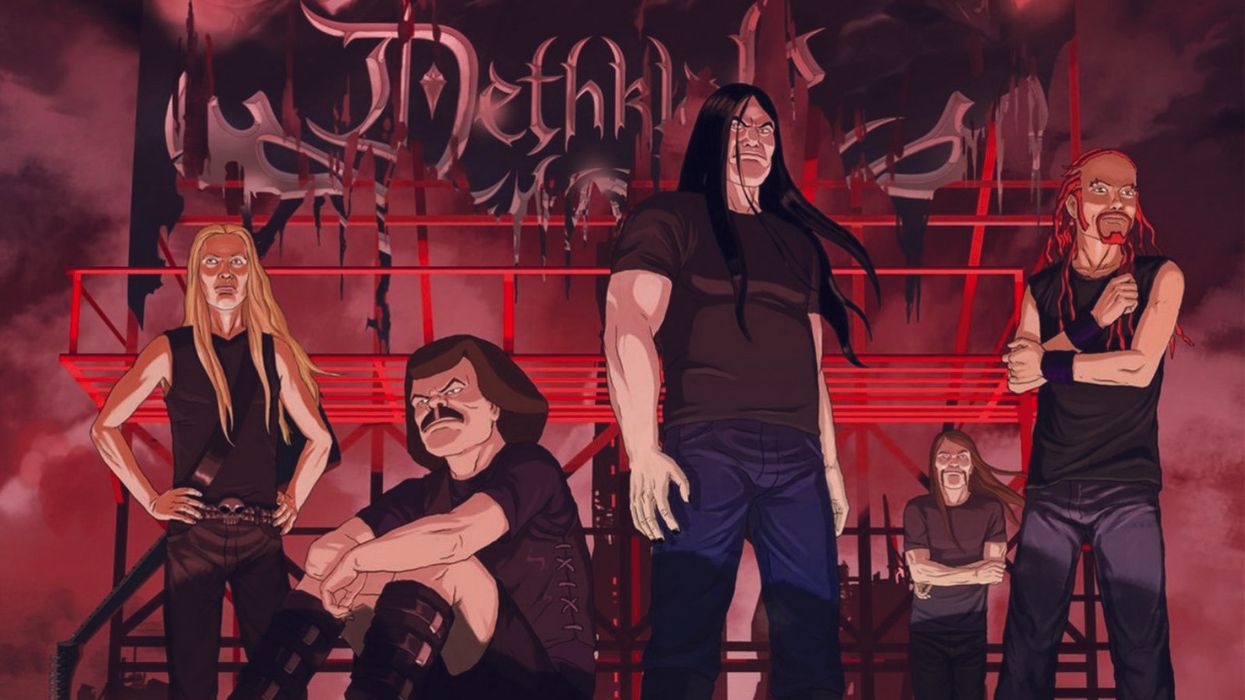
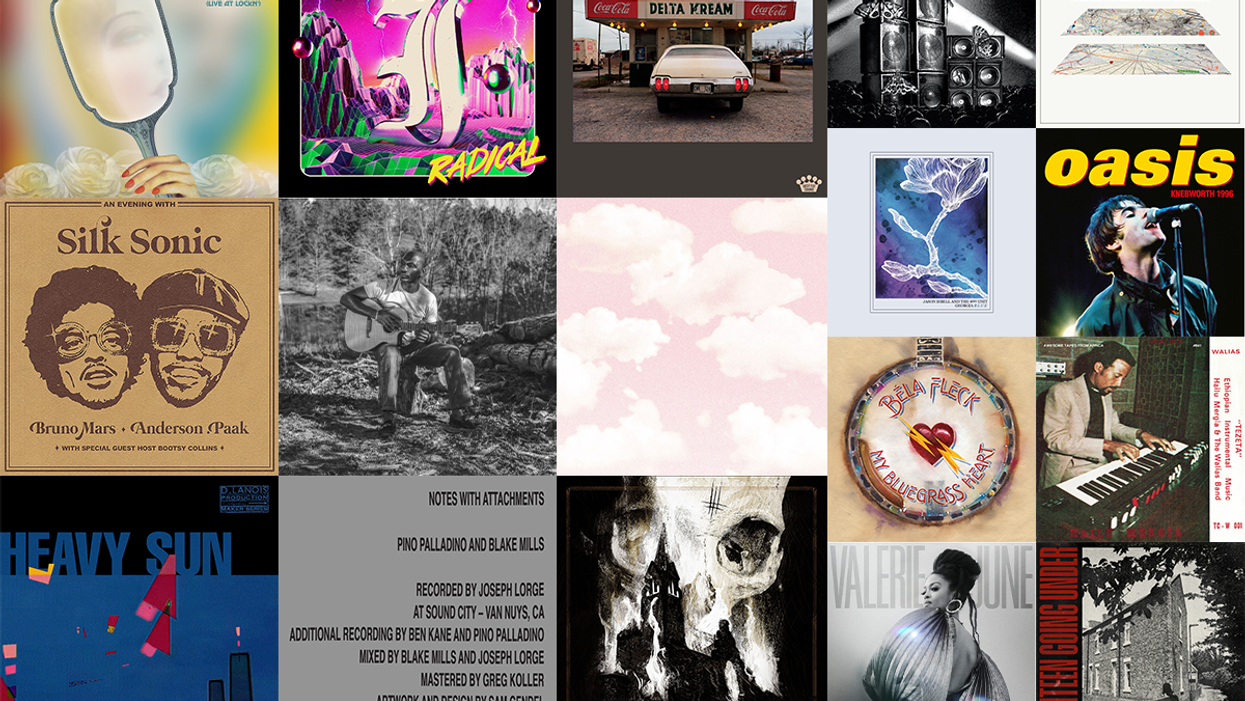
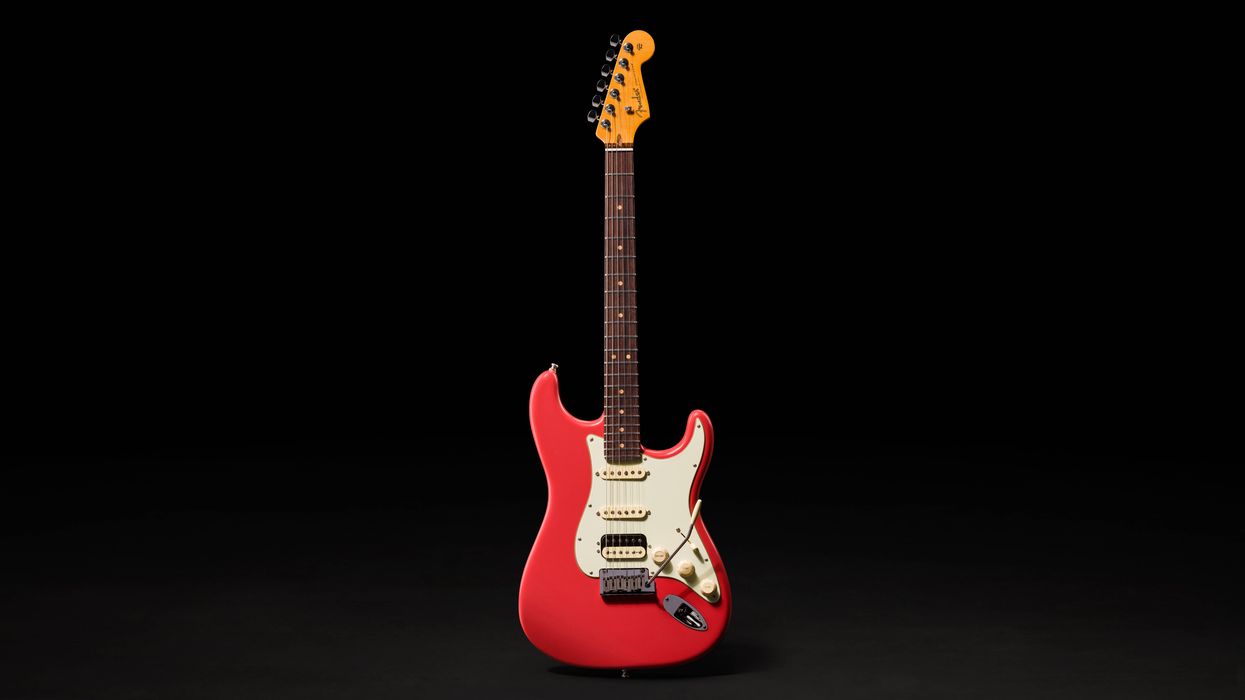
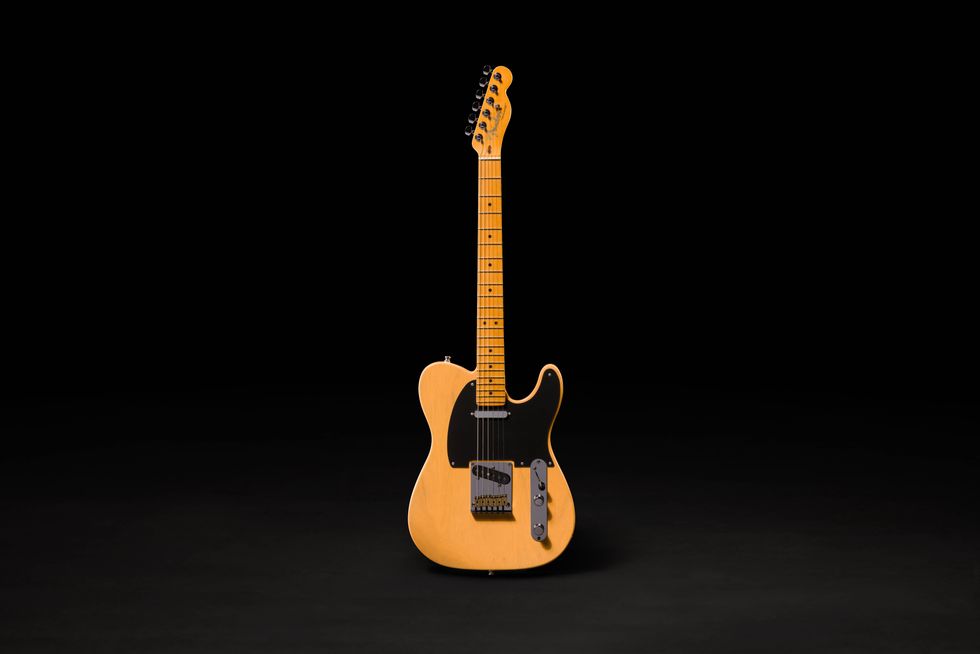
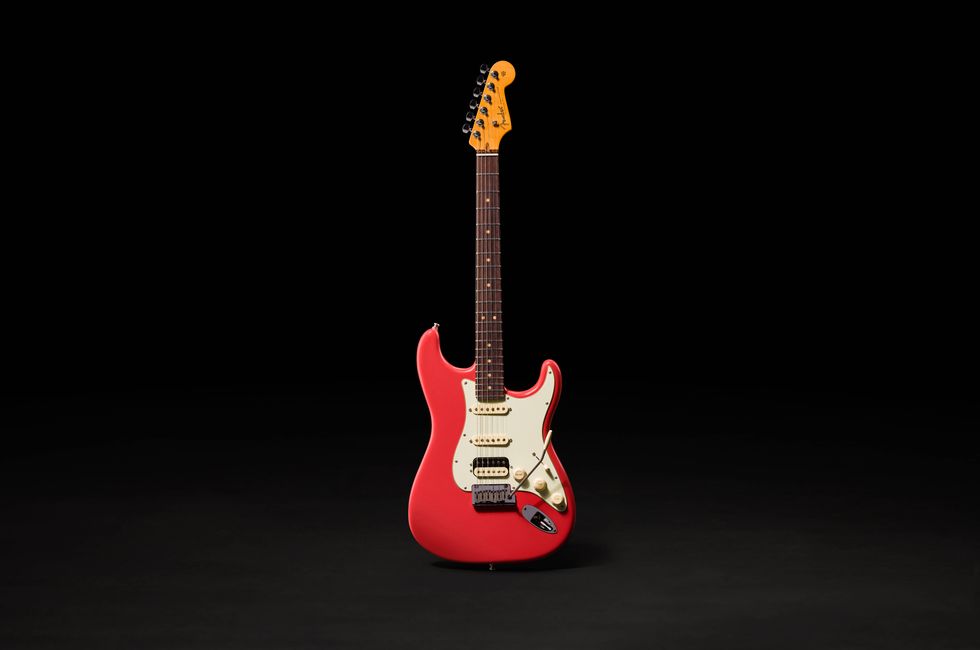
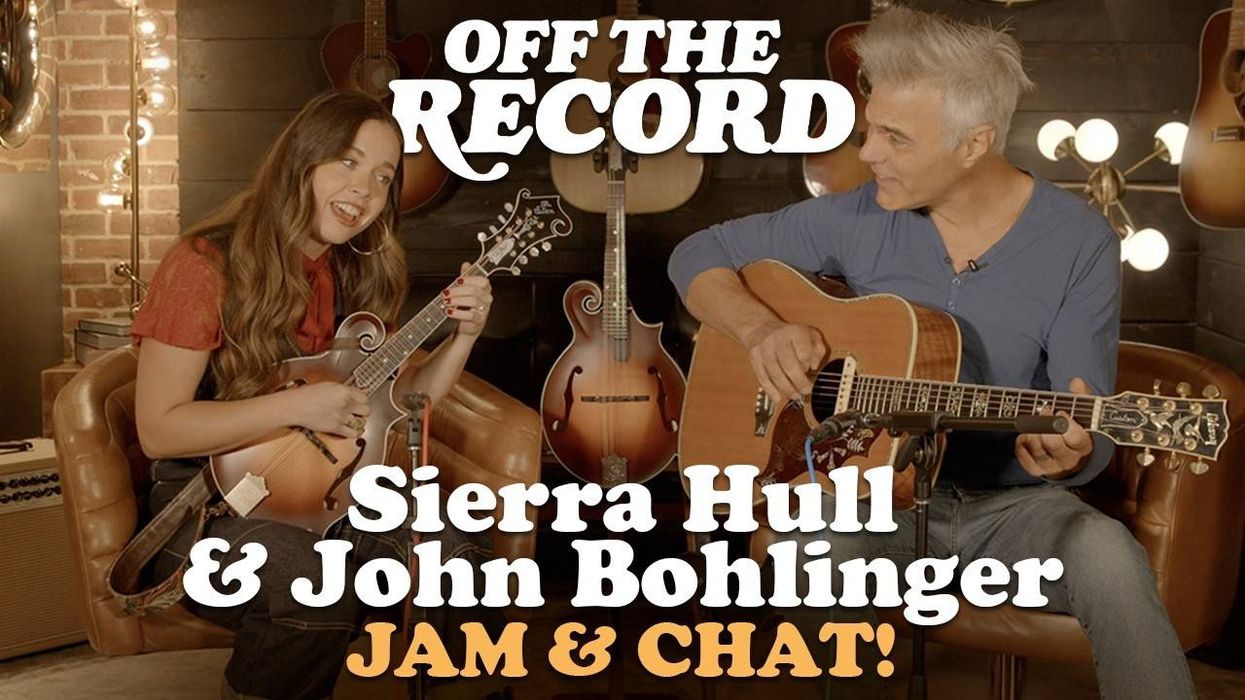
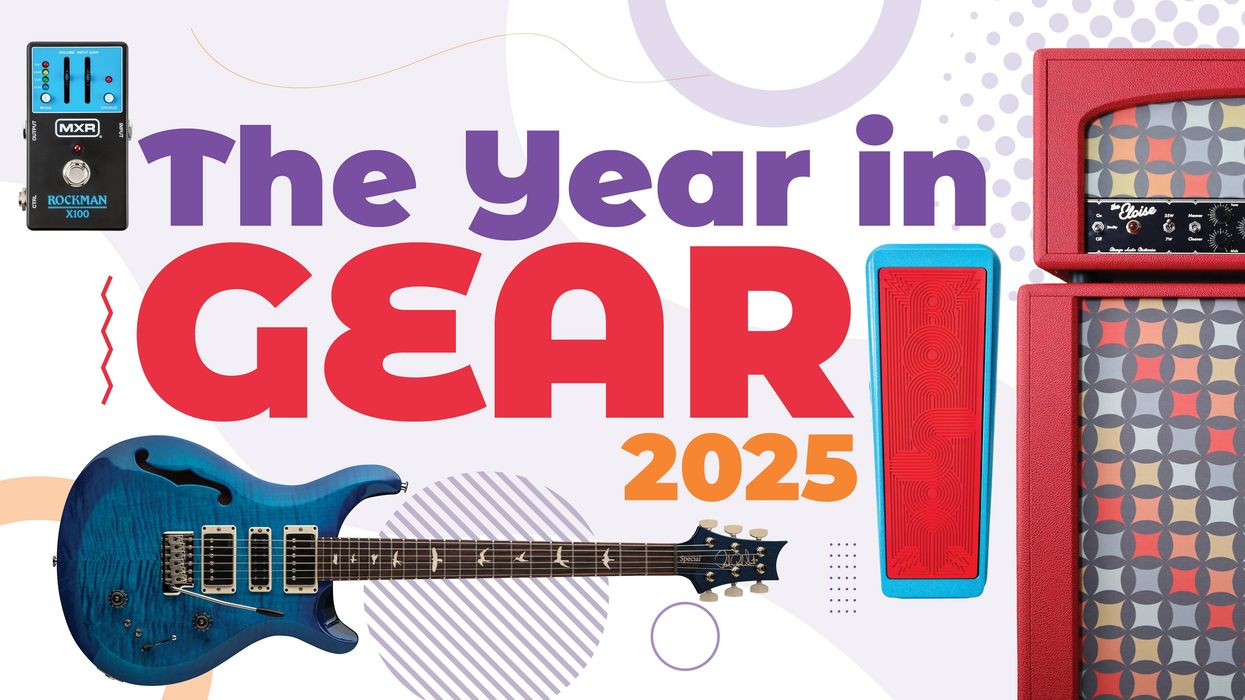
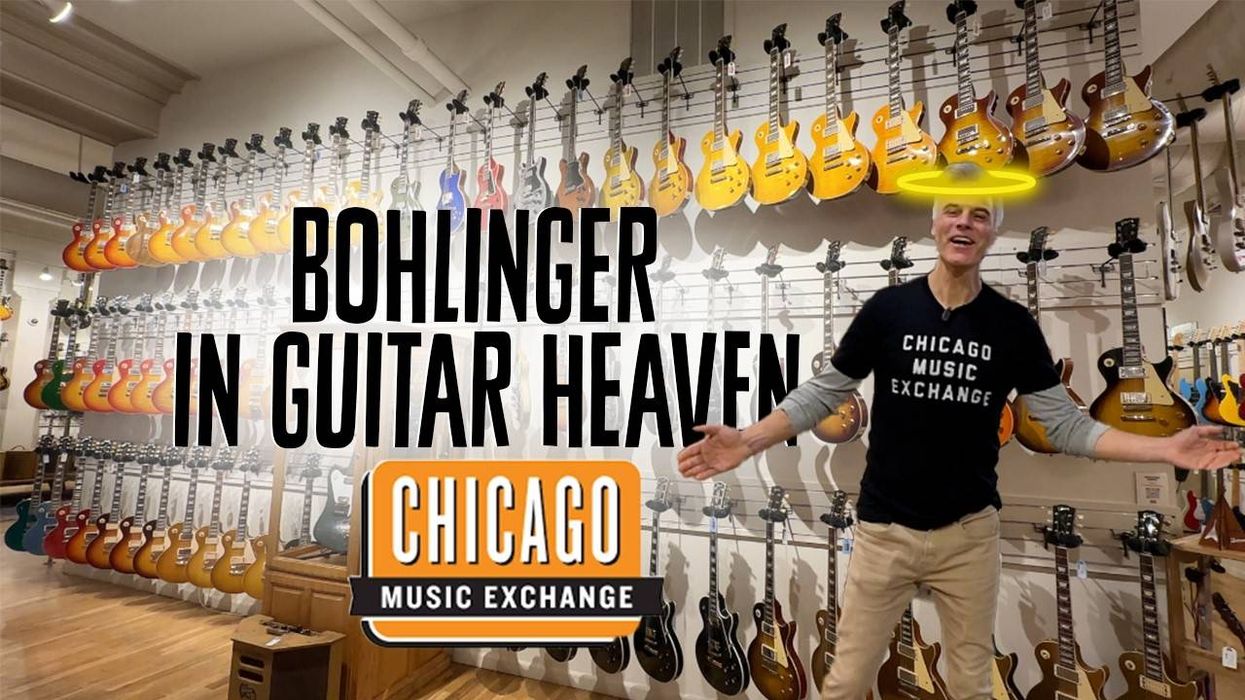
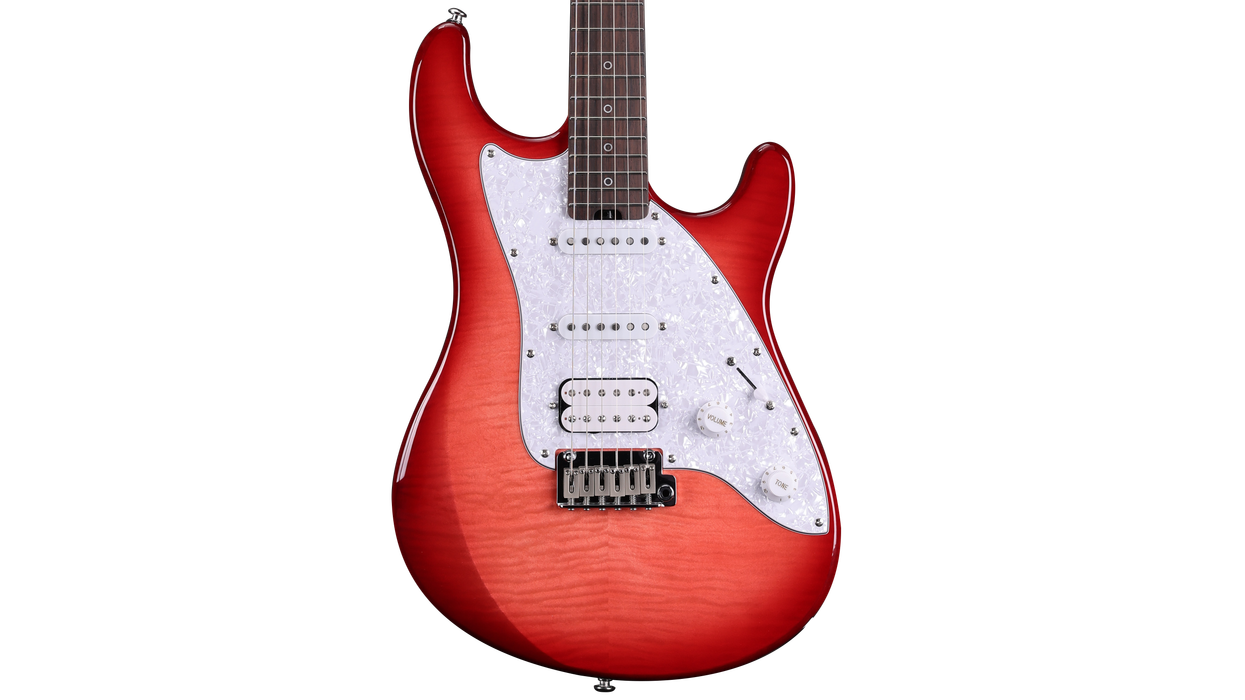
![Devon Eisenbarger [Katy Perry] Rig Rundown](https://www.premierguitar.com/media-library/youtube.jpg?id=61774583&width=1245&height=700&quality=70&coordinates=0%2C0%2C0%2C0)
